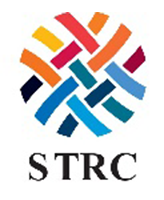Traceability in cotton involves tracking the path of cotton fibers from their origin to the end product.
Cotton is a natural fiber, typically grown in warm weather regions across the globe in many countries
spanning multiple soil-types, management practices, environmental stressors, and varying social and
environmental sustainability standards. Cotton from numerous regions are utilized by spinning mills
across the manufacturing sector and blended heavily to generate yarn. Blends can be from single or
multiple-origin cottons, synthetic fibers, cellulosic fibers, etc. adding more complexity to the traceability
situation. Yarn from different mills can be used to manufacture fabric which then goes through an array
of wet processing and finishing treatments before it makes its way into the retail sector. Therefore,
tracing finished products back to its raw fiber state is exceptionally challenging in cotton owing to the
complexity in the supply chain across the world. While traceability has become critical for some
consumers to help them make sustainable choices, it is also a requirement for certain countries which
require evidence to show the provenance of cotton products being imported.
